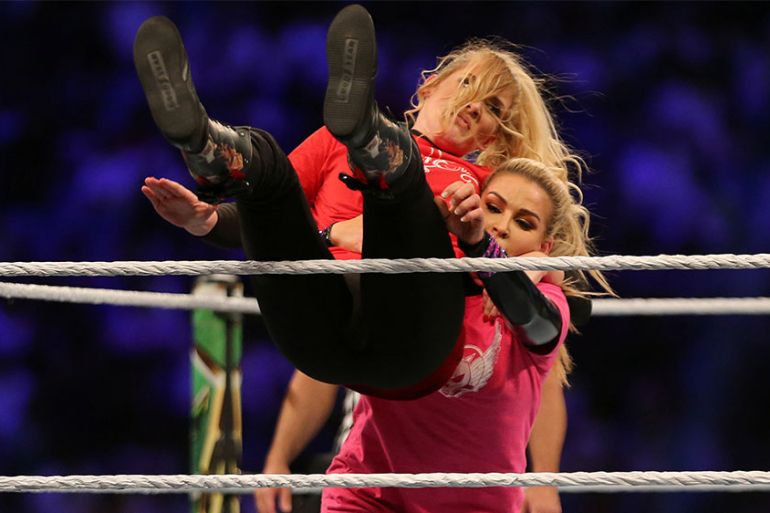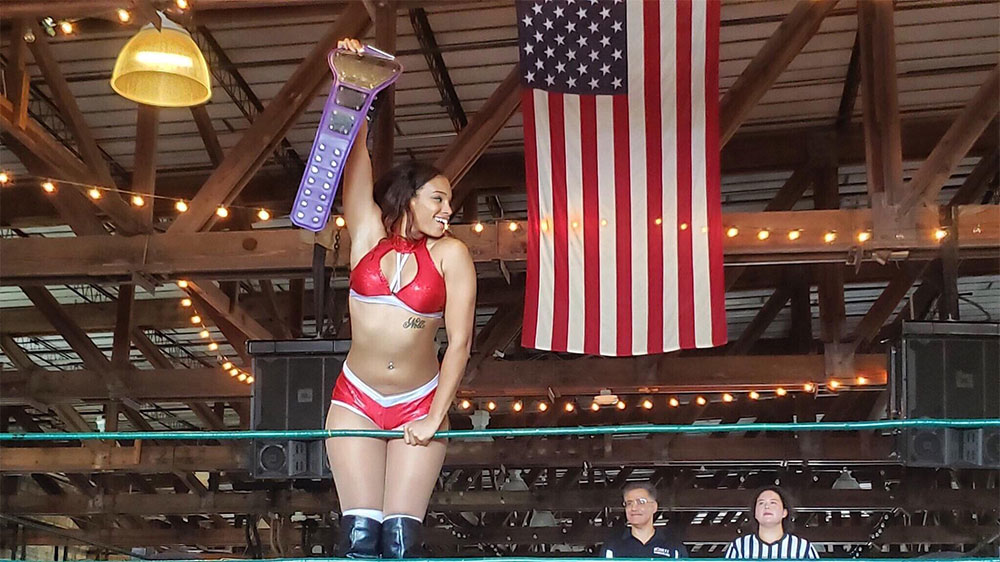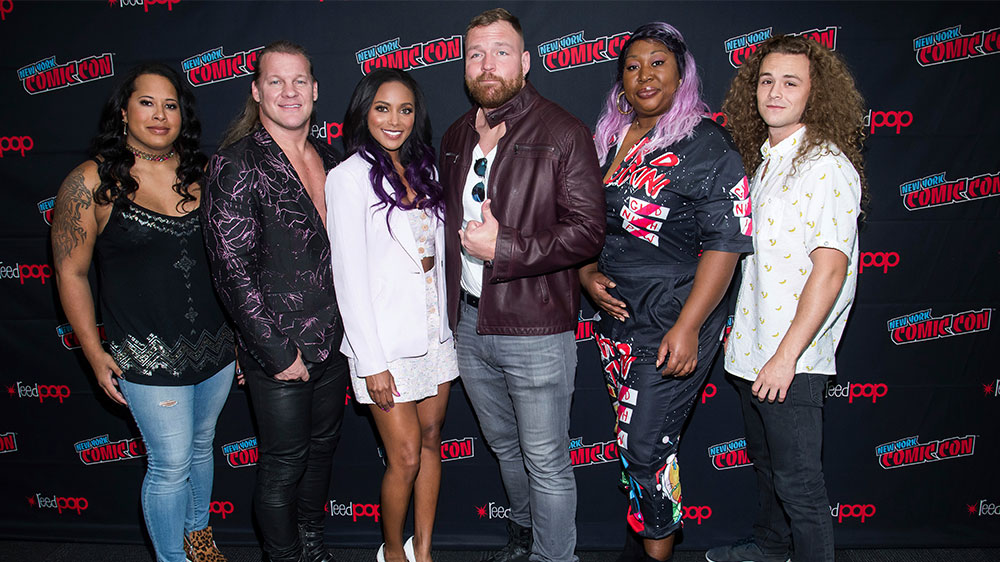Pro wrestlers in US grapple with coronavirus lockdown
How long the pandemic will bear down on pro wrestling is unclear, but many are not optimistic about the short term.

The old adage insists that, in entertainment circles, “the show must go on”. But what if it cannot?
It is a quandary facing many entertainers as padlocks are put on stadium gates, stage doors, and movie house entrances because of the coronavirus pandemic. The ban on large public gatherings in the interest of social distancing has decimated the industry, including the United States’s pro-wrestling scene.
Keep reading
list of 3 itemsCoronavirus: Which countries have confirmed cases?
Should countries follow Italy’s coronavirus quarantine?
Every wrestling promotion has been forced to cancel events because of the nationwide ban. Even the biggest name in the billion-dollar industry, World Wrestling Entertainment, has locked audiences out of its signature matches and moved the shows to a closed set.
By some accounts, WWE has already lost at least $19m in gate revenue, but because their performers are on fixed-term contracts the men and women who do the actual wrestling are not expected to suffer major financial hardship.
That is not the case for wrestlers at the less glamorous end of the spectrum, who compete in smaller independent shows – the kind that are staged in high school gyms, bars and bingo halls. In this world, if there are no shows, there is no pay.
Kaci Lennox, an up and coming talent that performs in wrestling shows across Florida, is feeling the pain first-hand.
The 27-year-old told Al Jazeera: “The situation is very problematic. A lot of us depend on wrestling to pay our bills. Some people just don’t have money saved up.”
She added: “you can’t really expect something like this to happen and be prepared. At least most people can’t.”

Bad timing
The crisis could not have come at a worse time for the likes of Lennox, who works a second job at Orlando’s SeaWorld theme park to support herself.
Around the start of April every year, WWE stages what is known as the “show of shows”, Wrestlemania, which features industry megastars like John Cena, and is laden with celebrity appearances and wild pyrotechnics.
The event attracts about 100,000 fans to whichever city it is in, and to capitalise on the extra eyeballs, smaller companies organise shows in the same city in the days leading up to the spectacle.
This year Tampa was the intended venue, but the coronavirus meant all the shows had to be called off. The big-league matches that make up Wrestlemania were moved to WWE’s closed set.
Lennox has been booked to perform at two events in Tampa this year. Now she is not.
“Wrestlemania is an extremely big event for wrestlers like me. Obviously the show not happening as planned, took a lot of money from our pockets,” she said. “It’s a time for us to show how good we are to so many people, who may have not seen us before. It’s a way for us to network in person which is always better.”
|
|
Significant disruption
It is unclear how long the pandemic will continue to bear down on the industry, but many observers are not optimistic about the short term. The CEO of Major League Wrestling, Court Bauer, called the disruption to the sport “significant”.
“I expect some [wrestling promotions] will struggle,” Bauer said. “Companies like Disney are having to do big debt deals, which tells you no one is immune to this.”
The prognosis will not be music to the ears of independent wrestlers like Lennox. However, the situation is not total doom and gloom. That is according to lawyer Stephen P New, who for years has represented professional wrestlers.
New says that independent grapplers like Lennox who have lost earnings could benefit from the Trump Administration’s $2.2 trillion coronavirus stimulus package.
“Previously the unemployment benefit had not been available to independent contractors – who are referred to as gig workers – like musicians in night clubs, or in this case independent wrestlers,” New said. “But with this stimulus package, an independent wrestler could claim unemployment compensation benefits for a total of 10 months.”
New said the stimulus package throws a lifeline to small wrestling promotions that have suffered.
“It also includes some payroll protection plans and some low interest loans for small businesses who may be feeling the crunch,” he said.
New concedes, however, that more must be done to raise awareness about these options among the entertainers themselves, and he fears those in need could miss out.

Helping those in need
There have also been some proactive moves by individual members of the wrestling community. Some big-name stars have urged fans to support the independent scene, by buying merchandise and not cancelling bookings for postponed shows.
Jon Moxley of industry giant All Elite Wrestling, which is still putting on televised shows behind closed doors, went a step further by making several donations to smaller promotions that have suffered financial losses.
Such steps will certainly do the situation no harm. But ultimately a return to action as soon as safely possible is what’s needed.
Until then, Lennox is trying to take a positive approach to being sidelined, hoping to come back to the ring stronger than ever when the pandemic passes.
“I wake up, I work out … and I’m trying to remain as active as I can.”